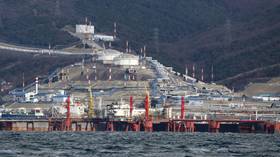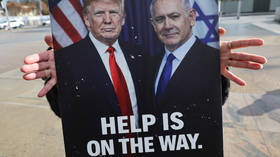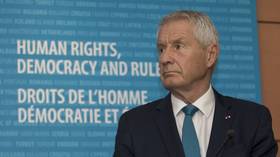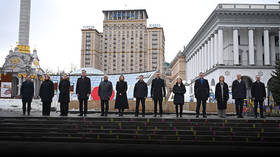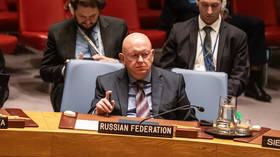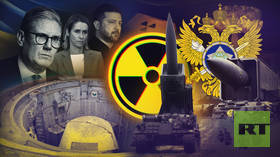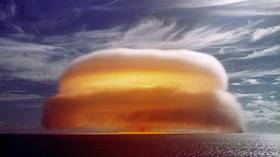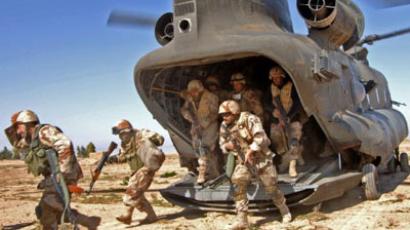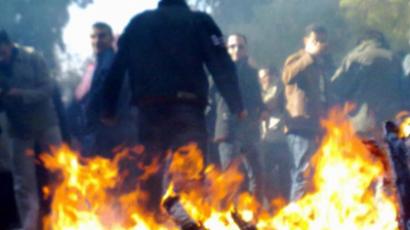Syria blames Al Qaeda for Damascus suicide blasts
Two suicide car bombs apparently aimed at state security facilities rocked the Syrian capital on Friday leaving at least 40 dead and 100 wounded. The government dubbed the attacks “terrorist operations with involvement by al-Qaeda.”
RT’s Sara Firth, who has just returned from Damascus, says reports suggest the attacks might have been launched by an increasingly well-armed section of the opposition.Syrian officials took the Arab League observer group to the scene of the explosions in order to demonstrate that the violence in the country is, as they see it, the work of organized terrorist groups. However, opposition leaders have rejected the authorities’ version of events, accusing the government of escalating its crackdown to make its point to observers.According to Omar Idlbi of the opposition Syrian National Council, the explosions were "very mysterious because they happened in heavily guarded areas that are difficult to penetrate in a car."State TV said police had arrested an individual involved in the attacks in the Kfar Sousa district of Damascus which claimed the lives of both civilians and soldiers. The attacks are believed to be the first in the Syrian capital since the start of the uprising against President Bashar Al-Assad in March.They come a day after a team of Arab League observers arrived in Syria in the hope of salvaging prospects for peace in the conflict-torn country.
Russia supports the mission, but the US and its allies have blocked an official UN Security Council promotion of the observers. Vitaly Churkin, Moscow’s envoy to the United Nations, expressed regret over the West’s refusal to cooperate.“It’s a straightforward text of encouragement, of commendation, of support and appreciation of the Arab League, and a pretty straightforward expression of intent to help to put an end to violence. Unfortunately I can tell you that a number of the Security Council members objected to our draft. This is an illustration of the difficulties we encounter working in the Security Council, because when we try to do something positive we are inevitably met with all sorts of concerns about 'balance;' 'why didn’t you include this, why didn’t you include that,' and it brings the entire conversation back to square one.”
Former Belgian MP Lode Vanoost believes the ongoing conflict in Syria is not simply about domestic issues, but has geo-strategic implications.“The West wants to control the Middle East, and for the moment, Syria remains a dictatorship out of their control,” he told RT.“The issue is not whether Syria is a dictatorship or not. NATO and the West are supporting the dictatorships in Saudi Arabia, Bahrain and others. The issue is whether that regime is on their side or not. Syria is clearly not on their side, therefore they have to go," Lode Vanoost said. "What is happening in Egypt and Tunisia is very worrisome to Western leaders – they do not want genuine democracy for obvious reasons: all opinion polls in these counties point out that their populations want another peaceful solution for Israel, for example. They want their economies to benefit themselves, not foreign companies. For all these reasons they also want to control Syria. This is not about Syrian patriots.”


